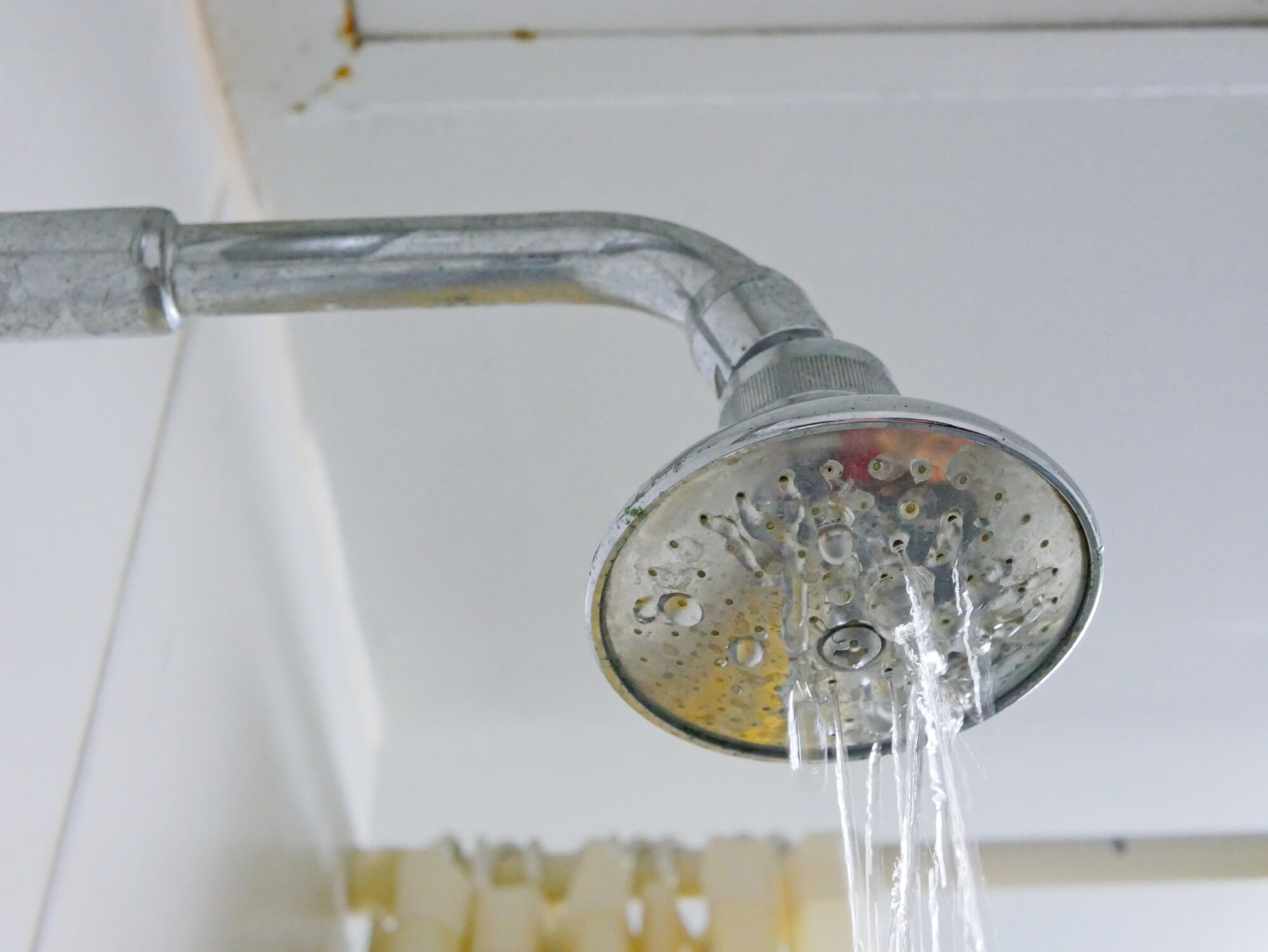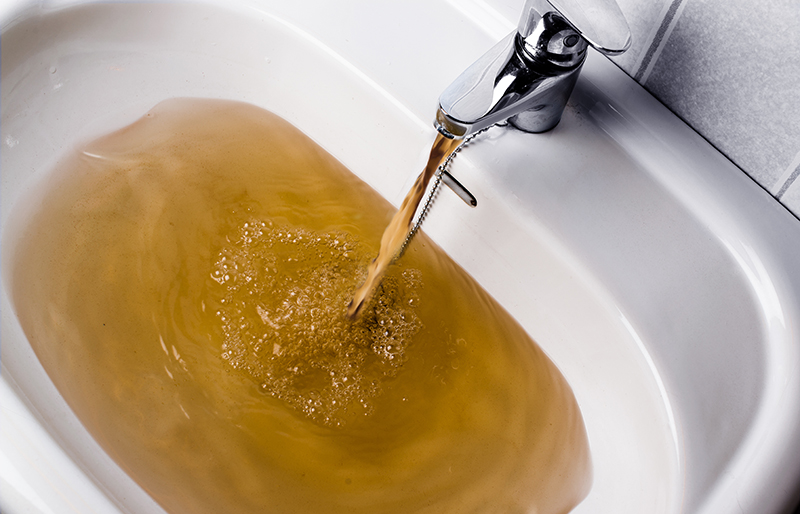They are making a number of great pointers on the subject of Why Do My Pipes Make Noises in general in this great article underneath.

To detect noisy plumbing, it is important to figure out very first whether the unwanted audios happen on the system's inlet side-in other words, when water is transformed on-or on the drain side. Noises on the inlet side have actually varied reasons: too much water pressure, used shutoff and tap parts, improperly attached pumps or other devices, improperly placed pipeline fasteners, and plumbing runs consisting of too many limited bends or other constraints. Noises on the drainpipe side normally stem from inadequate location or, similar to some inlet side noise, a format including limited bends.
Hissing
Hissing noise that takes place when a faucet is opened a little normally signals excessive water stress. Consult your local public utility if you suspect this issue; it will have the ability to inform you the water pressure in your location as well as can mount a pressurereducing valve on the inbound supply of water pipeline if necessary.
Various Other Inlet Side Noises
Creaking, squeaking, damaging, snapping, as well as touching typically are brought on by the expansion or tightening of pipes, normally copper ones providing hot water. The noises occur as the pipes slide versus loose bolts or strike neighboring house framing. You can commonly pinpoint the place of the trouble if the pipes are subjected; simply follow the noise when the pipelines are making noise. Probably you will certainly discover a loose pipe hanger or a location where pipelines lie so near to flooring joists or other framing items that they clatter versus them. Attaching foam pipe insulation around the pipelines at the point of contact ought to fix the issue. Make certain bands and also hangers are secure and offer appropriate assistance. Where feasible, pipeline bolts need to be attached to huge structural elements such as foundation walls rather than to framing; doing so minimizes the transmission of resonances from plumbing to surface areas that can magnify as well as transfer them. If connecting fasteners to framing is inevitable, wrap pipes with insulation or other durable material where they get in touch with fasteners, and also sandwich completions of brand-new bolts in between rubber washing machines when mounting them.
Remedying plumbing runs that struggle with flow-restricting tight or numerous bends is a last resort that should be taken on just after getting in touch with a knowledgeable plumbing service provider. However, this circumstance is fairly common in older residences that might not have actually been developed with indoor plumbing or that have seen numerous remodels, specifically by novices.
Chattering or Screeching
Intense chattering or shrilling that takes place when a shutoff or tap is activated, which normally vanishes when the fitting is opened fully, signals loose or faulty internal parts. The service is to replace the shutoff or faucet with a new one.
Pumps and also devices such as washing machines and also dishwashing machines can transfer electric motor sound to pipes if they are incorrectly linked. Link such items to plumbing with plastic or rubber hoses-never inflexible pipe-to isolate them.
Drain Noise
On the drain side of plumbing, the chief objectives are to get rid of surfaces that can be struck by dropping or hurrying water as well as to insulate pipes to have inevitable noises.
In new building and construction, bath tubs, shower stalls, bathrooms, and wallmounted sinks and also containers ought to be set on or against resistant underlayments to minimize the transmission of sound through them. Water-saving commodes as well as faucets are much less noisy than conventional versions; install them instead of older kinds even if codes in your area still permit making use of older fixtures.
Drainpipes that do not run up and down to the basement or that branch right into straight pipe runs sustained at floor joists or various other mounting present specifically troublesome sound problems. Such pipelines are big enough to emit considerable resonance; they likewise lug considerable quantities of water, that makes the situation even worse. In new building and construction, specify cast-iron dirt pipes (the huge pipes that drain pipes bathrooms) if you can manage them. Their massiveness has much of the sound made by water going through them. Additionally, avoid transmitting drainpipes in wall surfaces shared with bed rooms and spaces where people gather. Wall surfaces containing drains should be soundproofed as was defined previously, using dual panels of sound-insulating fiberboard as well as wallboard. Pipelines themselves can be wrapped with unique fiberglass insulation made for the function; such pipelines have an impervious plastic skin (sometimes including lead). Outcomes are not constantly acceptable.
Thudding
Thudding sound, often accompanied by trembling pipelines, when a faucet or home appliance shutoff is turned off is a condition called water hammer. The sound and vibration are brought on by the reverberating wave of pressure in the water, which instantly has no place to go. In some cases opening up a shutoff that discharges water rapidly right into an area of piping containing a limitation, arm joint, or tee fitting can generate the same condition.
Water hammer can normally be healed by installing fittings called air chambers or shock absorbers in the plumbing to which the trouble shutoffs or faucets are connected. These gadgets permit the shock wave developed by the halted circulation of water to dissipate in the air they contain, which (unlike water) is compressible.
Older plumbing systems may have short vertical sections of capped pipe behind walls on faucet runs for the exact same function; these can eventually full of water, decreasing or ruining their efficiency. The remedy is to drain the water system totally by turning off the primary water system valve as well as opening all faucets. Then open the primary supply shutoff and also shut the taps one by one, starting with the faucet nearest the valve and ending with the one farthest away.
If Your Plumbing is Making These Sounds, There’s a Problem
A Bang or Thump When You Turn Off a Faucet
If a loud bang or thump greets you each time your turn off running water, you likely have a water hammer. A water hammer occurs when the water velocity is brought to a halt, sending a shock wave through the pipe. It can be pretty jarring — even worse, damaging to your plumbing system. All that thudding could loosen connections.
Strange Toilet Noises
You’re so familiar with the sounds your toilet makes that your ears will be attuned to anything out of the ordinary. Fortunately, most unusual toilet noises can be narrowed down to just one of several problems.
Foghorn sound:
Open the toilet tank Flush the toilet When you hear the foghorn noise, lift the float to the top of the tank If you’re ambitious, you can remove the ballcock valve and disassemble it to replace the washer. Or you can more easily replace the ballcock valve entirely. This device is relatively inexpensive and available at most any hardware store.
Persistent hissing:
The hissing following a flush is the sound of the tank filling. It should stop once the tank is full. But if the hissing continues, it’s likely because water is leaking out of the tank. The rubber flap at the bottom of the tank can degrade, letting water slip through and into the bowl. That’s why the tank is refilling continuously. Fortunately, this is an easy fix:
Cut the water to the toilet by closing the shutoff valve on the water supply line. Flush the toilet to drain the tank. Disconnect the flapper Attach the new flapper Gurgling or bubbling:
Gurgling or bubbling suggests negative air pressure in the drain line, likely resulting from a clog. As air releases, it causes the water in the toilet to bubble. This could either be a minor issue or a major one, depending on the clog’s severity. Clogs can be caused by toilet paper or more stubborn obstructions such as tree roots. If you can’t work out the clog with a plunger, contact a professional plumber for assistance because a clog of this magnitude could lead to filthy and unsanitary sewage backups in your sink bathtub.

Do you enjoy more info about Why Do My Plumbing Pipes Make A Knocking Noise? Write a remark down below. We would be pleased to find out your feelings about this write up. In hopes to see you back again later on. Loved our blog? Please share it. Help another person find it. I am grateful for your time. Visit us again soon.
Schedule